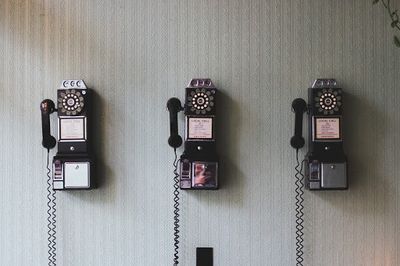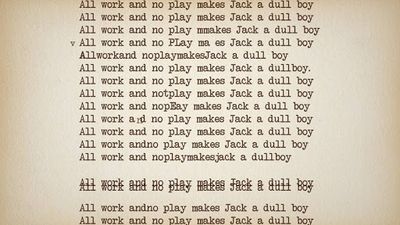Recently I made the leap into technical project management for one of our enterprise clients overseeing multiple concurrent platform migrations. My background and experience remains predominantly on the engineering side of projects like these, which would lead one to deduce that I would have a leg up on making such a switch. While I believe this to be true in some contexts, my time as a product owner has led me to question what the most valuable skills are to help shepherd along complex development efforts.
After months of fortifying my sea legs in the oceanic endeavor of working and interfacing with engineers, stakeholders, and other product owners, here are my top recommendations of honed skills needed to survive and thrive as an effective project manager:
Organization

As a self-professed mediocre multi-tasker, I was notably humbled at the outset with how rusty my organizational skills were. As an engineer, being tasked with a set of problems to solve and having the time and space to go solve them, I can go into the zone and emerge victorious with merged pull requests, wholly validated to see the fruits of my labor deployed successfully. Tracking my own needs and goals as a member of a distributed team is one thing - keyword “one.”
As a product manager, I am suddenly responsible for making sure a large team of developers have what they need to implement all the disparate pieces and processes required to produce a continuously changing body of work across many complex applications and systems. Tracking the needs and goals of a dozen other people is unfathomably challenging. Whatever tools or methods or software that help you stay organized will be a life-saver to staying on top of the progress of your team.
Exceptional Communication

When half a dozen folks are messaging me with a stream of questions simultaneously, being responsive remains my priority. Even if I don’t know the immediate answer, I try my best to acknowledge the question in real time and respond with “let me investigate that and get back to you.” Then having a place to track the various threads that I need to follow up with is a daily (hourly, really) practice and discipline. More than anything, being as clear and succinct as possible in both my verbal and written communication goes a long way to clarifying confusion and pre-empting more questions.
To this end, documentation can be super helpful to provide canonical answers to perennial questions. Although keeping documentation up-to-date can be yet another obligation that’s hard to maintain, having receipts at the ready when misfires happen provides a reliable sanity check.
Respect

As the new kid on the block, I was intimidated to step into a leadership role with talented people in a large corporate organization with complex applications and systems. What I did know and rely upon was my instinct to respect my colleagues’ time and approach them with questions when I had exhausted my own sleuthing capacity. A lesson from my engineering days - do as much investigation as I can on my own to understand the problem at hand. No one has time to spoon-feed us. At the same time, it’s good to know when to reach out in case someone does have a ready answer. Over time the art of when/who to ask questions arises naturally out of working together and cultivating a relationship.
Patience

It takes time to onboard. And it takes time to develop a rhythm and cadence as a team. For the perfectionists among us, patience is more than a virtue - it’s vital to preventing burnout and building confidence. Luckily most development teams I’ve been a part of have allowed for substantial onboarding time. In this case of rolling onto a project as a product development manager, my engineering background is a blessing. I was already familiar with agile process frameworks and well-versed in scrum workflows as a developer. On a technical level, I was coding in the legacy platforms from which we were migrating content which saved me valuable ramp-up time. So while I was able to jump-start this stint as a product owner, helping onboard another project manager who doesn’t have a technical background has illuminated how much more time it takes to onboard.
Willingness to Learn

If there is one mantra that encapsulates my experience thus far, it’s “the more I know, the more I don’t know.” Nonetheless, trusting my own critical intelligence and ambition to learn all the things has served me well. In my experience, project management involves a lot of strategic thinking, tactical planning, and extreme coordination - being able to look at the bigger picture, determining priorities for the team, sleuthing down requirements, and managing timelines and expectations on all sides. It’s still problem-solving at its core but rather than noodling on code with a laser focus, the skill sets required as a product owner are broader and challenging in a different sense - like keeping a hundred plates spinning simultaneously instead of a handful. Diving in deep with enthusiasm will go a long way towards ensuring success.
Preparation & Planning

Perhaps it goes without saying that preparation is the not-so-secret sauce. For most efforts in life, preparation and planning tend to increase the probability of endeavors coming to fruition. When it comes to managing a team of engineers to accomplish a set of ambitious goals, I’m a true believer in frontloading the work as early as possible to leave plenty of time for iterating and testing.
Attention to Detail

One transferable skill from being a developer to becoming a project manager is the crucial need to attend to details. As a long-time assignee of tickets, I am now responsible for writing tickets with as much clarity as possible, doing all the research needed to provide engineers with the information they need to implement solutions. Crafting pull requests over the years has helped me become more succinct and clear about the nuances of working on complex applications. As careful as I am modifying control structures in a new code base, that same attentiveness has helped me immeasurably in my first rodeo as a product owner.
Follow Through
The biggest challenge I face in this role is producing the work in a timely manner. Whether it’s promptly answering questions from developers and stakeholders or getting all the needed tickets groomed for a planning session, the pressure to produce as a project manager is no less acute as it is for an engineer. Although at times it feels somewhat unquantifiable, if I haven’t followed through with what I need to provide, a team of developers (and ultimately stakeholders) are left in the lurch. My job is to make sure others can do their jobs as efficiently and expertly as possible.
Time Management

Interruptions go with the territory. Most days it feels like I’m bouncing from one question to another, hunting down answers for whoever is asking. This can easily eat up most of my waking day if I don’t manage my time properly and leave myself windows for getting heads down and digging into whatever set of problems I need to handle. Being able to prioritize tasks for myself as well as my team is a hard skill I’ve had to cultivate, knowing that it’s not possible to ever feel like I’m done or caught up as new issues arise constantly.
Clean Boundaries
Burning out serves no one. If you’ve ever worked on a challenging project with a demanding client, you know as I’ve come to know that it’s far better for everyone when expectations are crystal clear and boundaries are as crisp as they can be. There are times of course when the call to stretch due to looming deadlines results in some occasional late nights. For the sake of good health and sustainability, I can’t recommend enough the practice and discipline of walking away and taking regular breaks. We know how “all work and no play” ends. For everyone’s safety and sanity, step away from the keyboard before it’s too late.

And that wraps up my short list of qualities that make for a successful transition into technical project management. Share some of your favorite PM tips with us @ChromaticHQ!



